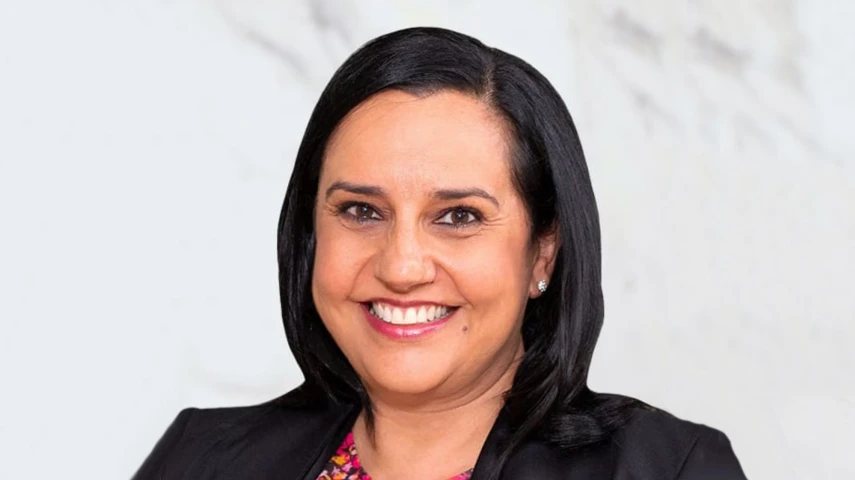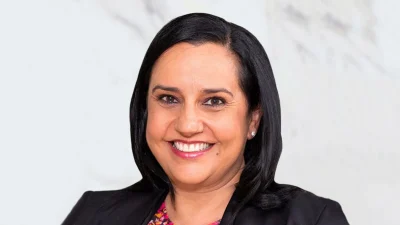Maple-Brown Abbott CEO on the firm’s desire to grow adviser reach



Now is a difficult time to be a fund manager, according to Maple-Brown Abbott chief executive, Sophia Rahmani, with the firm focusing on distribution to financial advisers to boost growth.
Maple-Brown Abbott, which offers funds covering Australian and Asian equities, global emerging markets, multi-asset and infrastructure, was set up 40 years ago and has around $10 billion in assets under management.
One upside is the fact that the business isn’t listed on the ASX which allows them to have an element of discretion compared to listed managers that regularly report results.
She said: “It is a good time to be privately owned as you are not tied to meeting the market’s expectations. There is a de-rating of fund managers and they don’t look as attractive as they used to be.
“As we think about where we can invest and where we should focus, we can’t be blinkered about what’s going on in the industry. I am excited about the prospect for active management and our ability to add value for investors.
“But there are definitely lots of challenges coming at us.”
As a way to grow, the firm is focusing heavily on its distribution and particularly targeting financial advisers.
“We are definitely trying to grow after years of outflows so we are thinking about where to focus our investments. We are investing more in Australian wholesale and building out our distribution team to reach more advisers, and that is definitely an area where we are making significant investment.”
She is also “open-minded” to tie-ups with other asset managers but warns the firm is keen to remain as a boutique manager.
“We look at things opportunistically and we do have a brand, system and processes that work. I’ve seen managers that want to speak with us and these have been reverse enquiries where they want to leverage what we do and bring something different. So we are open-minded but want to remain focused on being a boutique investment firm.”
Your Future, Your Super
One reason to focus more on financial advisers is that it has become harder to gain new mandates in the superannuation space.
There has been much upheaval in the super space with the introduction of the APRA annual performance test, the Your Future, Your Super (YFYS) legislation and the retirement income covenant.
There has also been a heavy focus on consolidation for the benefit of scale which has created several ‘mega’ super funds, including AustralianSuper, Australian Retirement Trust and Aware.
With super funds also looking to internalise their investment away from third-party managers, she added she is expecting Maple-Brown Abbott to have “fewer but deeper” relationships with the funds they work with.
“We expect to have fewer but deeper relationships with super funds and sovereign wealth funds, taking a partnership approach. With so much consolidation, there are fewer super funds to approach and trustee boards are facing a lot of challenges.
“But we can also have deeper relationships and we get funds coming to us to ask questions and we can work with them on that.”
She said super funds are under so much pressure to meet existing regulatory and legislative matters, they are unlikely to have time to seek out new managers.
“If you are an incumbent then you can probably gain some assets, but if you are trying to come in and get a new mandate, then that is harder as funds have no time for meetings or to build relationships with them.”
This is similar to comments made by Michelle Levy, lead of the Quality of Advice Review, last month, that super funds lack the time and resources to provide financial advice to its members, as suggested by the Minister for Financial Services, Stephen Jones.
The YFYS benchmark also harmed the firm’s bottom line around global listed infrastructure as it initially moved investors away from active management in that sector.
“On the institutional side, there has been a lot of disruption from YFYS; we lost about $2 billion from the benchmark change to global listed infrastructure. As an industry, outflows from global listed infrastructure funds would have been significant.”
However, the situation there has improved following changes to the YFYS benchmarks by the Treasury earlier this year.
For Australia and international listed infrastructure, the benchmark is now the FTSE Developed Core Infrastructure 50/50 100% Hedged to AUD Net Tax (Super) index, which means super funds can now invest in active managers again.
Recommended for you
LGT Wealth Management is maintaining a neutral stance on US equities going into 2026 as it is worried whether the hype around AI euphoria will continue.
Tyndall Asset Management is to close down the Tyndall brand and launch a newly-branded affiliate following a “material change” to its client base.
First Sentier has launched its second active ETF, offering advisers an ETF version of its Ex-20 Australian Share strategy.
BlackRock has revealed that its iShares bitcoin ETF suite has now become the firm’s most profitable product line following the launch of its Australian bitcoin ETF last month.












